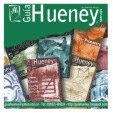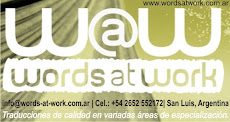The word "Roba" in Valencian language, means clothing. This textile waste management plan, under the program "Roba Amiga” (friendly clothing), responds to basic social and environmental objectives, which have an impact both locally and globally. The collection (taking) and recovery of waste for re-entry into the market has traditionally been an activity carried out by social organizations that have turned this into an innovative occupation aimed at the inclusion of people at social risk. The growth of this activity and its consolidation in the market have created a new business called the Third Sector. Roba Amiga is a program of Un Sol Mon Foundation, which belongs to the Charity Society Caixa Catalunya, whose aim is to consolidate and strengthen the work of social organizations devoted to the socio-professional insertion of people at risk of social exclusion. This program was created in 2002, and it has enabled the creation of more than 40 job posts in all the social entities in charge of the organisation’s management, and employs more than 200 people. The actions and lines of intervention focus on the collection of used clothing for recovery and retailing, as well as for export, recycling, and social awareness.
The Rastrel Association is a nonprofit group founded in early 1983 in the city of Valencia which was initially promoted by a group of Christian Communities. This “junkman” work gained society’s recognition over time. It is mainly concerned with the home collection and handling of bulky waste, furniture, appliances, clothing, ferrous metals, etc. At present the Association is composed of thirteen people in stable employment situation, and a group of collaborators who make it possible to continue. One of the Association’s objectives is the creation of new jobs for people with social and work insertion problems. The jobs focus on second hand recycling .
Similar activities take place in Argentina with an eye on ecology. The tendency is to reuse clothes, as well as shoes and furniture, which are displayed at fairs or markets. At some sewing workshops, there are more items every day, shoemakers gain more visibility; they ideally fix everything and give the items a personal touch.
This activity was born many decades ago, but became stronger in the '70s as a fashion for a specific group of people, and it then spread with American fairs and "vintage fashion” shops.
The phenomenon, that began in Europe and especially in England, spread around the world. In Argentina, more and more people adopt it, some in order to save, others to be original, and others because they value unique garments. Today, social insertion companies have become a strategic agent of transformation of our society. Through their work, they promote values such as social, environmental and economic sustainability. They are therefore a landmark in terms of environmental dissemination and promotion: Reducing, Reusing and Recycling.
Container of "Roba Amiga" in Valencia streets
- Spain. These people leave the clothes they no longer wear. Associations are responsible for removing them, cleaning them and mending them. After that, they are taken to “Moda Amiga” shop networks, which sell them.
- Spain. These people leave the clothes they no longer wear. Associations are responsible for removing them, cleaning them and mending them. After that, they are taken to “Moda Amiga” shop networks, which sell them.



